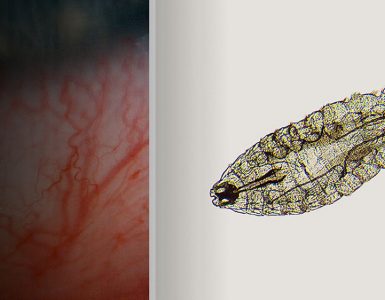Meconium is the dark green, tar-like very first poop of the baby that is made up of protein, fats, epithelial cells, amniotic fluid, and intestinal secretions. Though not many people pay attention to it, the latest study has shown that the composition of meconium can tell a lot about the immune system and microbiome of the baby. The research also showed that if meconium lacks a dense mixture of molecules, then in the future, the baby’s gut could not properly colonization of good bacteria, putting them at risk of developing allergies later on.
In another ongoing longitudinal Cohort project, scientists analyzed 100 meconium samples and compared those to allergies tests performed on infants after their first birthday. The major finding of the study was that those infants who developed allergic sensitization had less diverse metabolites in their meconium.

Charisse Petersen or the University of British Columbia reported that the major impact in terms of composition was in the number of different types of amino acids, vitamins, and plant compounds. These substances are needed for the growth of the microbiome which in turn helps with the development of the immune system, thus tolerance for new microbes teaches a baby’s immune cells not to overreact to benign signals. The limitation of the study includes small sample size and in the future, more diverse cohorts should be used.
As the meconium starts forming in 16 weeks in utero, so its composition can be affected by the factors or food it encounters. The researchers are now trying to collect a large sample size from expecting parents to figure out the factor/s that could affect the diversity of metabolites in meconium. Some factors for consideration include a family history of allergies, exposure to antibiotics, mode of delivery of a child, maternal smoking status, but no factor helped explain the results. So, in the future, the hunt for key metabolites should be continued to help boost healthy immune responses in newborns.
The bacteria that makeup a baby’s microbiota start colonizing right after birth and keep diversifying till the first one to three years of life until they reach a stable state during toddler-hood. It is a very brief window. Surprisingly, the baby’s immune system is also developing around the same time frame, helping the body in the identification of what’s harmful and what’s harmless.
Microbiota helps with this overlap. Scientists involved in this study are interested in finding out which metabolites are the most supportive for better infant microbiota and boosted immune system, so in the future, those precise metabolites can be included in the diet of the mother during pregnancy. There are different studies under process, on examining the effects of diet during pregnancy. Petersen recommended that pregnant mothers should avoid unnecessary antibiotics, promote vaginal birth and breastfeeding, and allowing kids to play outdoors to help boost their immunity and reduce the risk of allergies.
To conclude, allergic sensitization is reflected by reduced metabolic diversity and limited gut microbiota mutation in infants as suggested by their meconium examination. The trajectory of microbiota colonization and immune development is greatly affected by metabolite’s presence in the neonatal gut at the time of birth.
Keywords:
Meconium, microbiota, immune system, good bacteria, allergies.
















Add comment